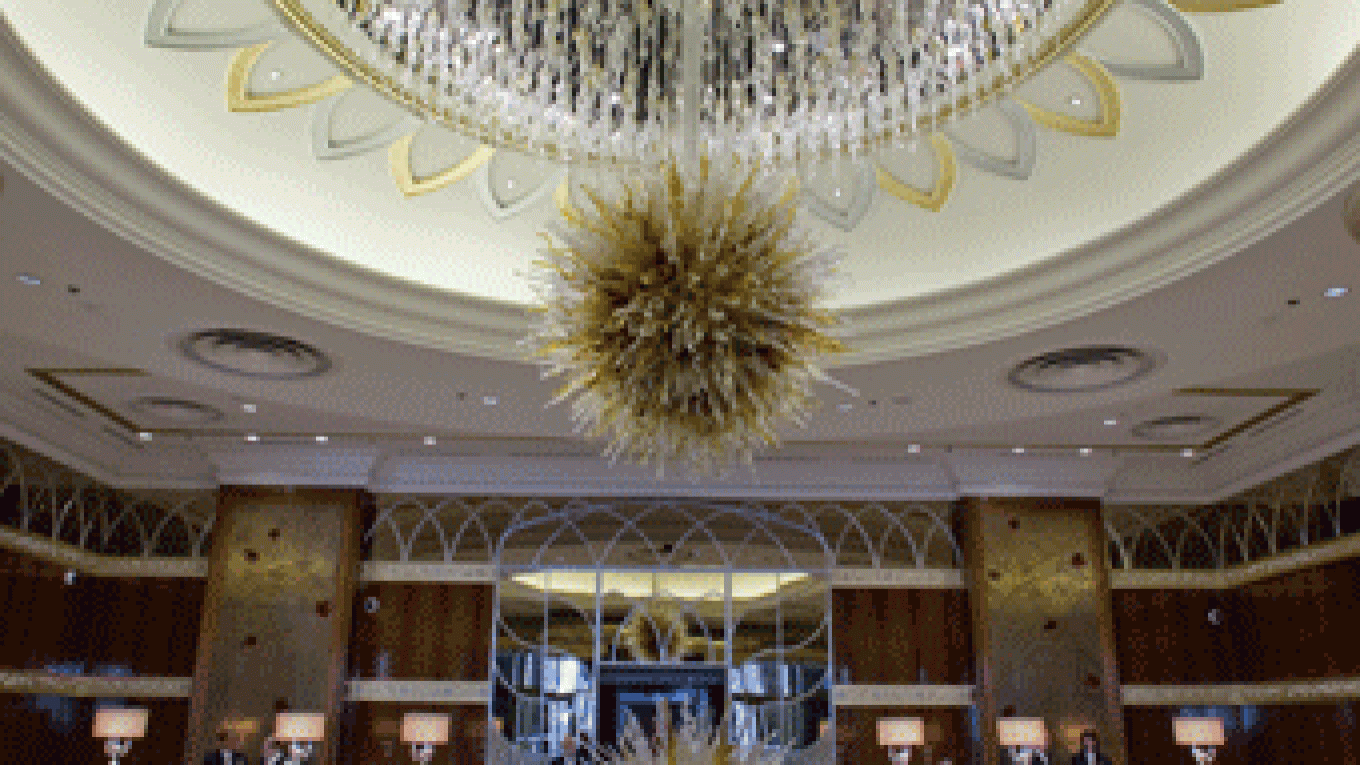Moscow hotels remained the world's most expensive for business customers for the sixth straight year, ahead of New York, Geneva, Paris and Zurich, in a survey of 2010 rates by Hogg Robinson Group, a British business travel agency.
The average Moscow room rate paid by a Hogg Robinson client last year actually slipped 3 percent to £258.67 ($415), the Basingstoke, England-based company said in an e-mailed report.
Doha, Qatar, was the only other city in the top 10 that saw a drop, while Zurich, Hong Kong and Stockholm rates surged more than 10 percent.
"More than half of the 75 cities we surveyed recorded room rate increases, reflecting the improving, albeit tentative, levels of business confidence," Margaret Bowler, director of global hotel relations, said in the report, which was published last week. "Particular countries and regions are emerging quicker than others from recession, but there are definite signs of increasing room rates, which go hand in hand with increasing business travel."
Business travel can act as an early barometer of economic growth or a slowdown in activity, chief financial officer Julian Steadman said. The world economy rebounded in 2010 from the global financial crisis, led by emerging market economies such as China, India and Argentina.
In local currency terms, the average Moscow rate fell 12 percent to 13,250 rubles ($452), Hogg Robinson said.
New York hotel room rates rose 3 percent to £211.92 in 2010 from a year earlier. Zurich rates gained 13 percent to £198.58, and Geneva 9 percent to £203.42. Paris was unchanged at almost £201, representing a 5 percent decline in local currency terms to 234.30 euros ($316).
The biggest drop was in Abu Dhabi, the United Arab Emirates, where the construction of new hotels resulted in rates plunging 25 percent to £167.81. In Australia, Brisbane rates climbed 32 percent and Sydney hotel room prices surged 21 percent partly because of fluctuating exchange rates.
London average rates rose 3 percent to £156.91, ranking the British capital 29th of the cities surveyed.
A Message from The Moscow Times:
Dear readers,
We are facing unprecedented challenges. Russia's Prosecutor General's Office has designated The Moscow Times as an "undesirable" organization, criminalizing our work and putting our staff at risk of prosecution. This follows our earlier unjust labeling as a "foreign agent."
These actions are direct attempts to silence independent journalism in Russia. The authorities claim our work "discredits the decisions of the Russian leadership." We see things differently: we strive to provide accurate, unbiased reporting on Russia.
We, the journalists of The Moscow Times, refuse to be silenced. But to continue our work, we need your help.
Your support, no matter how small, makes a world of difference. If you can, please support us monthly starting from just $2. It's quick to set up, and every contribution makes a significant impact.
By supporting The Moscow Times, you're defending open, independent journalism in the face of repression. Thank you for standing with us.
Remind me later.






